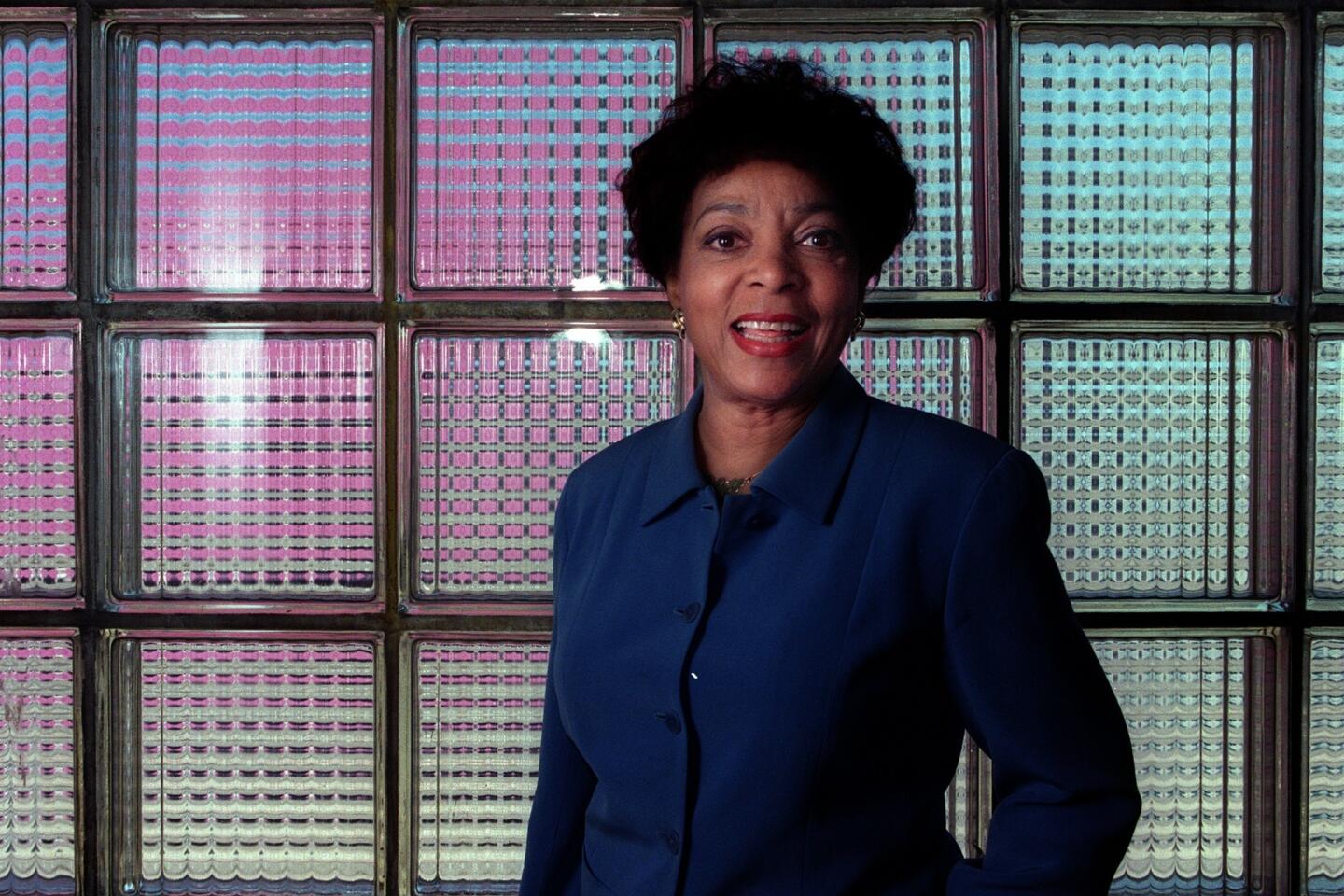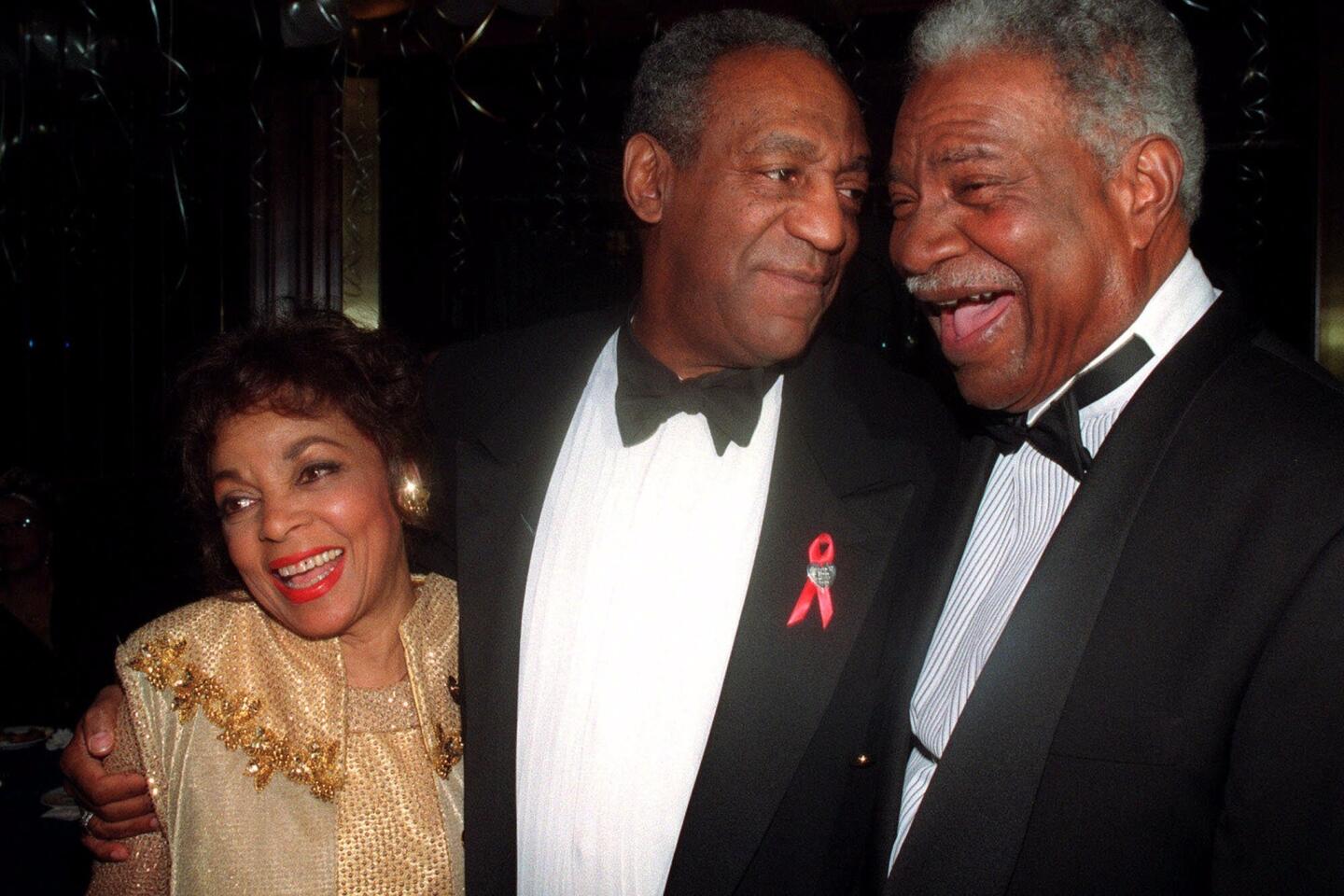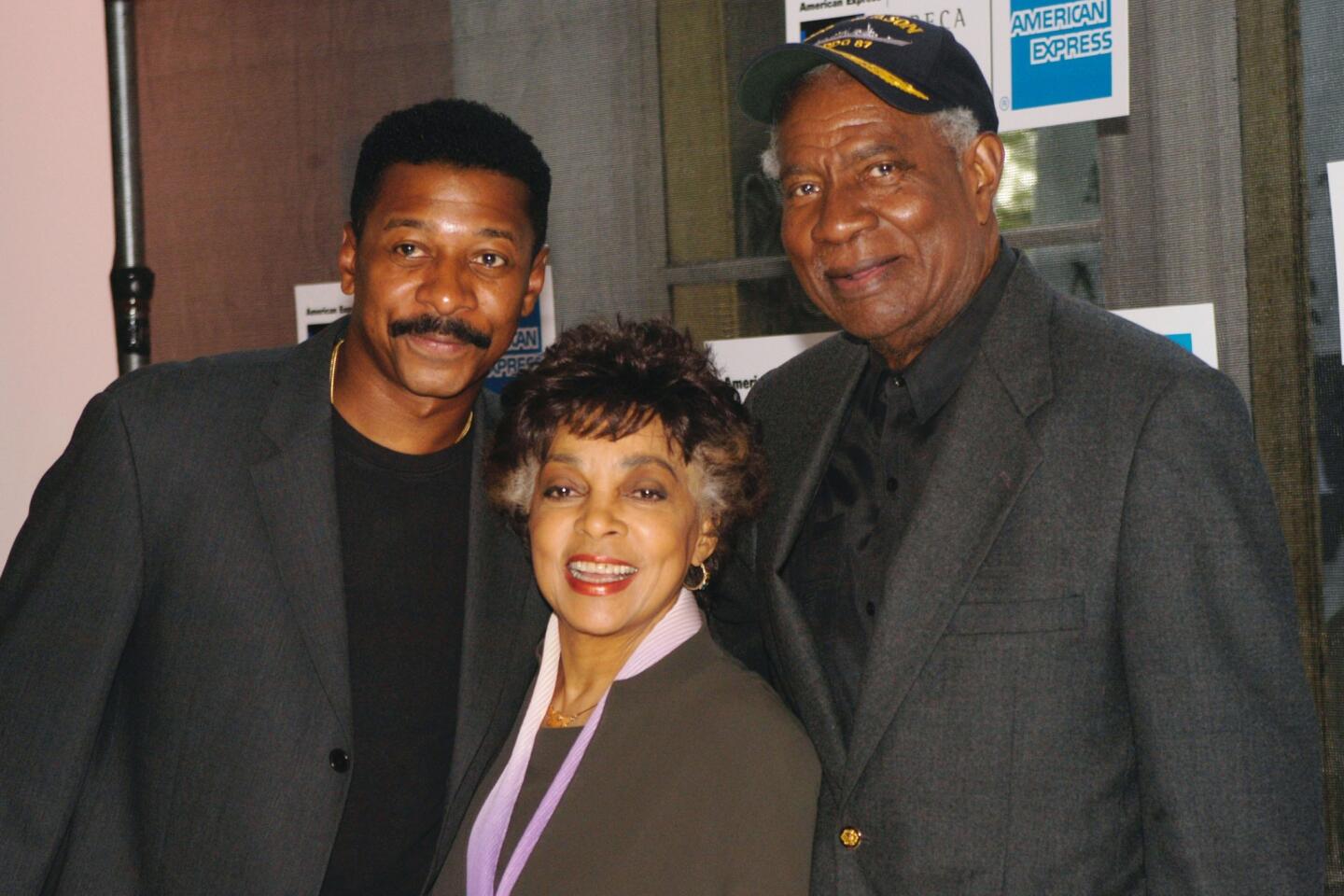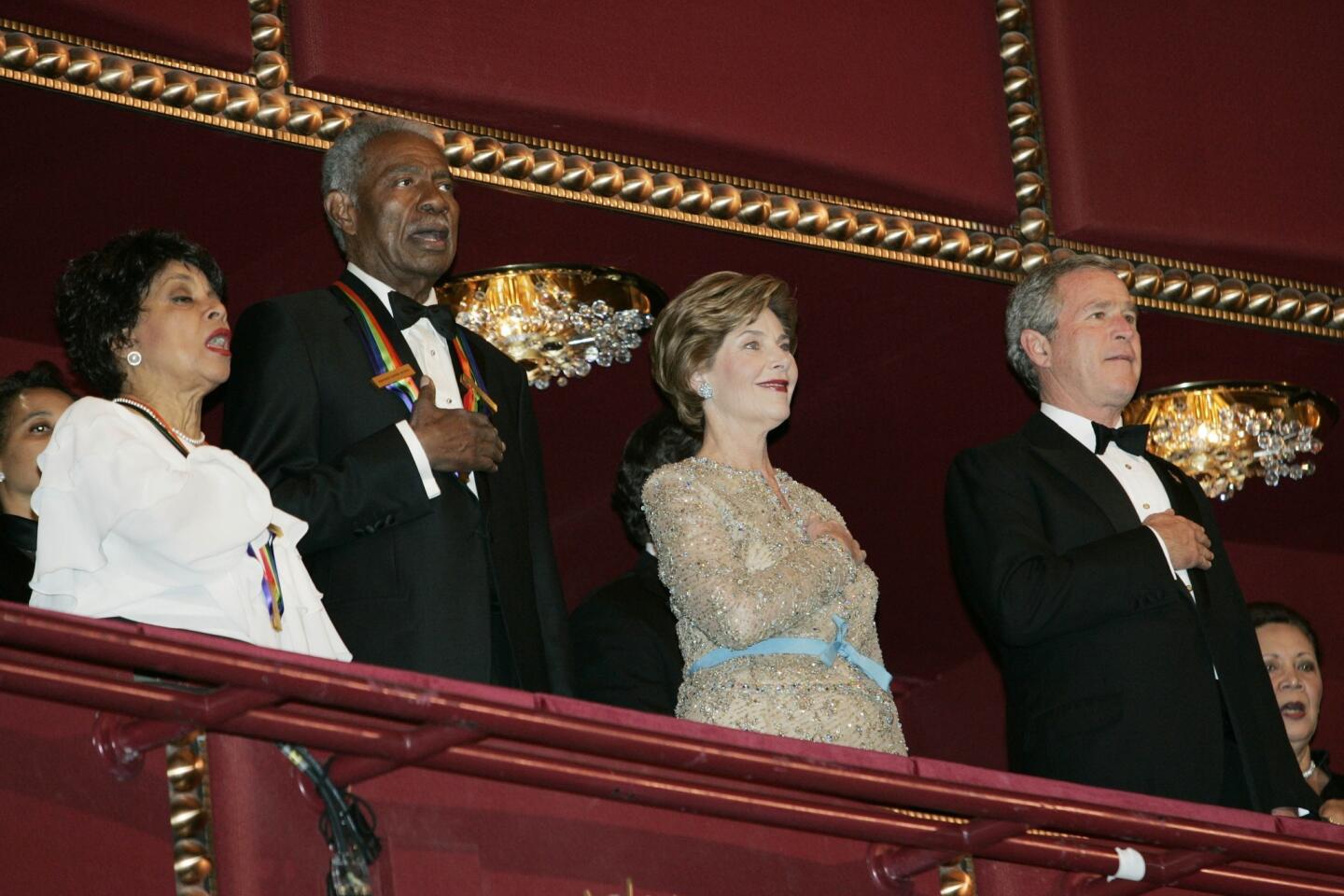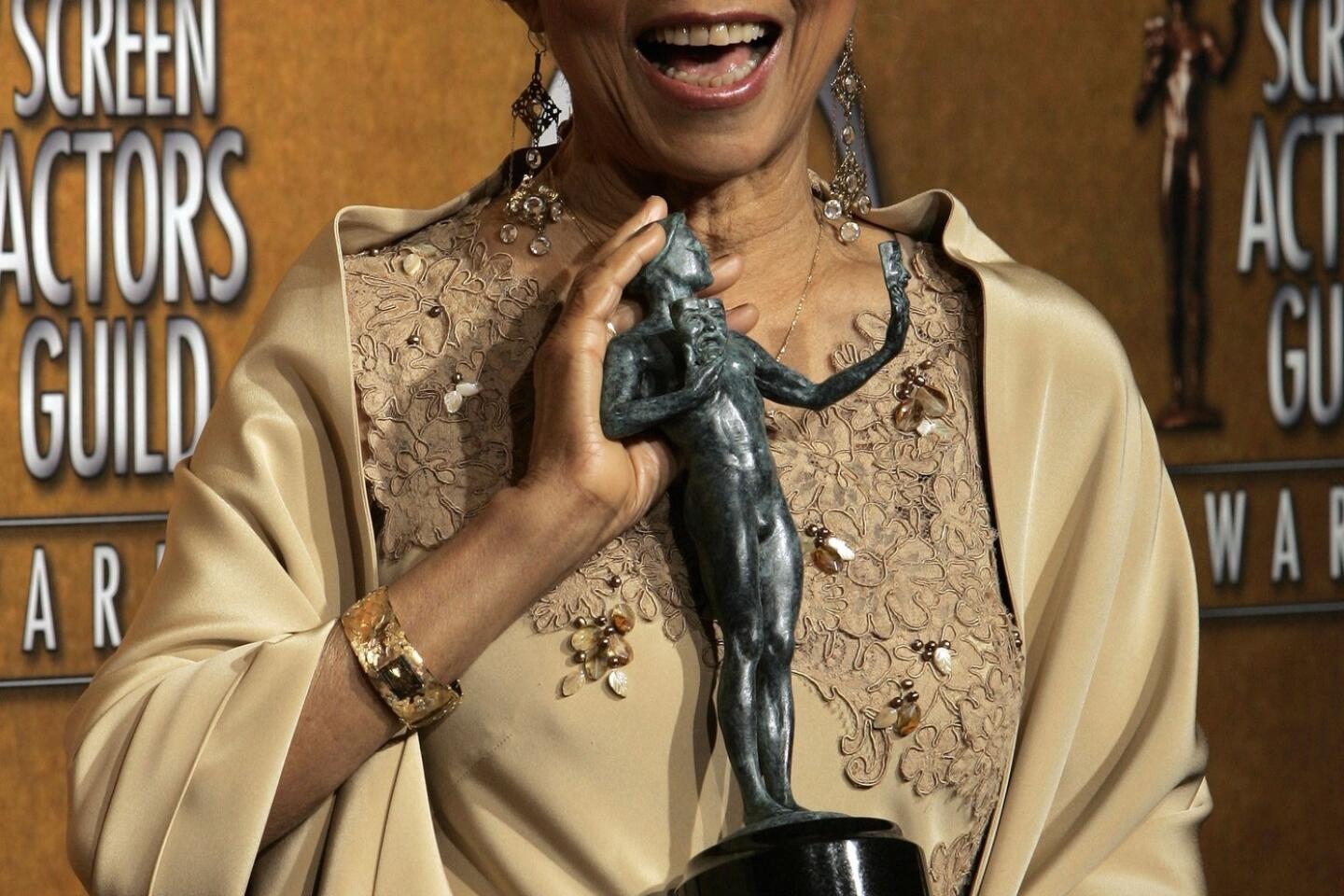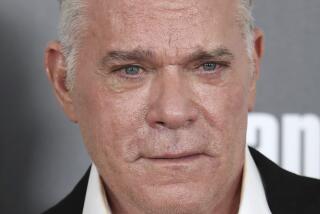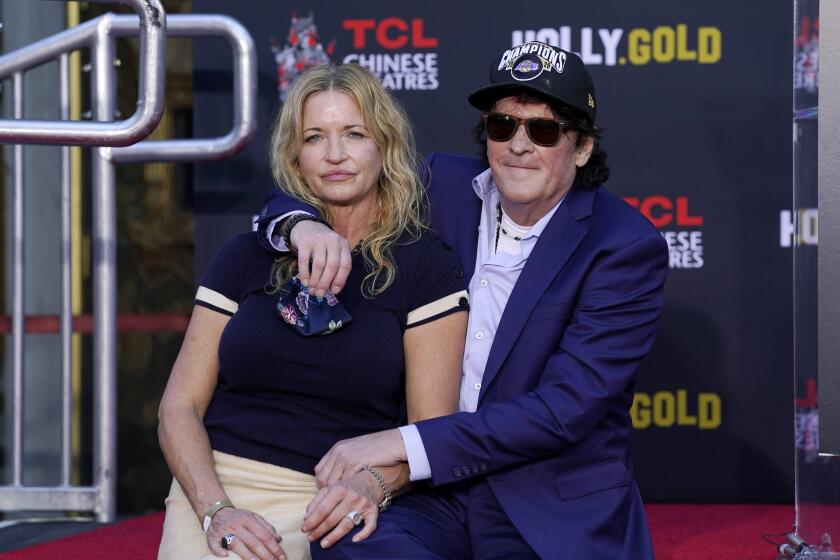Ruby Dee made her graceful mark on artistic, activist stages
Ruby Dee packed a lot of power in a tiny package. Barely topping 5 feet, 2 inches, she nevertheless loomed large.
Still, there was a softness alongside the steel, a smile gracing her face more often than a frown. There was a kindness in her eyes, a sense of inclusion she extended to a world that didn’t always reciprocate. She was married for nearly 60 years to her artistic and activist soul mate — actor Ossie Davis, who passed away in 2005 — an accomplishment not many in Hollywood can claim.
Dee, who died Wednesday at age 91, made her mark on the craft early on in the groundbreaking Broadway staging of “A Raisin in the Sun” in 1959. She played Ruth Younger, wife to Sidney Poitier’s Walter. It would earn three Tony nominations — for the play, director Lloyd Richards and Poitier.
Last Sunday it felt as if things had come full circle. The much-praised revival of Lorraine Hansberry’s moving dissection of a struggling African American family living on Chicago’s South Side would take home three of Tony’s top awards, including one for Sophie Okonedo, playing Ruth more than a half-century after Dee made the role iconic.
That night a weeping Audra McDonald, in accepting her Tony for “Lady Day at Emerson’s Bar & Grill,” would cite Dee among all the “strong and brave and courageous women” whose shoulders she and so many others stand on.
Many called Dee and Davis the quintessential African America power couple. I thought them more an empowered couple — facing down discrimination, refusing to be stopped by barriers, racial and otherwise, every step of the way. Their influence is what earned them the Kennedy Center Honors in 2004, one of the many that would recognize their contributions.
Dee often made big waves in smaller roles that somehow perfectly suited her substantial talent. In the 1979 TV movie “I Know Why the Caged Bird Sings,” based on the life of the late Maya Angelou, Dee made her few minutes as Grandmother Baxter memorable. An authority figure, Grandmother Baxter provided a safe haven for Angelou and her brother for a few critical months. One of the many strong figures who would shape the future poet laureate’s view of a woman’s place in this world, Dee infused the character with warmth and wisdom.
Spike Lee astutely put Dee in his films early on: As Mother Sister, the all-seeing matriarch of the simmering Bed-Stuy neighborhood in 1989’s “Do the Right Thing,” in 1991’s “Jungle Fever” playing opposite Davis as parents of the film’s compromised man portrayed by Wesley Snipes.
Dee never really stopped working, forever roaming across TV, stage and film, wherever the work took her — more than a hundred credits in all. There is no word on when or if her final film, “King Dog,” will be released. But it is another redemption story, one of triumphing against the odds.
I think one reason Ruby Dee’s Oscar-nominated turn in 2007’s “American Gangster” resonated so deeply is that Mama Lucas, mother to Denzel Washington’s mobster, was so fierce. A no-nonsense woman who started with nothing, spoke her mind and didn’t suffer fools, including her much-loved son.
The “Gangster” scene is extraordinary for its honesty as well as its intensity, a few minutes that nevertheless demanded that attention be paid. With an elegant staircase rising in the background, mother confronts son about his destructive ways. Her “Don’t lie to me” admonishment is delivered like acid on a wound. The slap across his face that follows carries a sting you can almost feel.
That performance seemed very much a reflection of the way Dee lived her life: insistent that her voice be heard, whether the stage was artistic or political, unwilling to stand in anyone’s shadow.
Twitter: @BetsySharkey
More to Read
Only good movies
Get the Indie Focus newsletter, Mark Olsen's weekly guide to the world of cinema.
You may occasionally receive promotional content from the Los Angeles Times.
